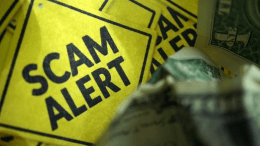 Bad actors take advantage of natural disasters and severe weather at a time when people may be especially vulnerable. Hurricane Ida is giving scammers another path for taking advantage of people during a crisis. One way they do this is by posing as representatives of charities seeking donations for disaster relief. Scammers are looking to trick you into handing them your money or financial information.
Bad actors take advantage of natural disasters and severe weather at a time when people may be especially vulnerable. Hurricane Ida is giving scammers another path for taking advantage of people during a crisis. One way they do this is by posing as representatives of charities seeking donations for disaster relief. Scammers are looking to trick you into handing them your money or financial information.
The following are some tips for protecting yourself from disaster relief charity scams.
Do your research.
It is imperative that you do some online research before you give to any charities. The Federal Trade Commission recommends the following resources to research charity organizations:
Do not open suspicious emails.
If you receive a suspicious email requesting donations or other assistance, do not click on any links or open any attachments. Scammers regularly use email for phishing attacks and to spread malware.
Verify information in social media posts.
Double-check any request for charity donations before you give. Crowd-funding websites often host individual requests for help but they are not always verified by the site or other sources.
Be careful how you pay
If someone wants donations in cash or gift cards, don’t do it. That’s how scammers trick you into paying.
To be safer, pay by credit card.
It’s a good practice to keep a record of all donations. And review your statements closely to make sure you’re only charged the amount you agreed to donate. Make sure you’re not signed up for a recurring donation.
To report suspected fraud, call the FEMA Disaster Fraud Hotline toll-free at 1-866-720-5721. If you need to report other fraudulent activities during or following a natural disaster, please notify FEMA at 1-866-720-5721 or disaster@leo.gov.